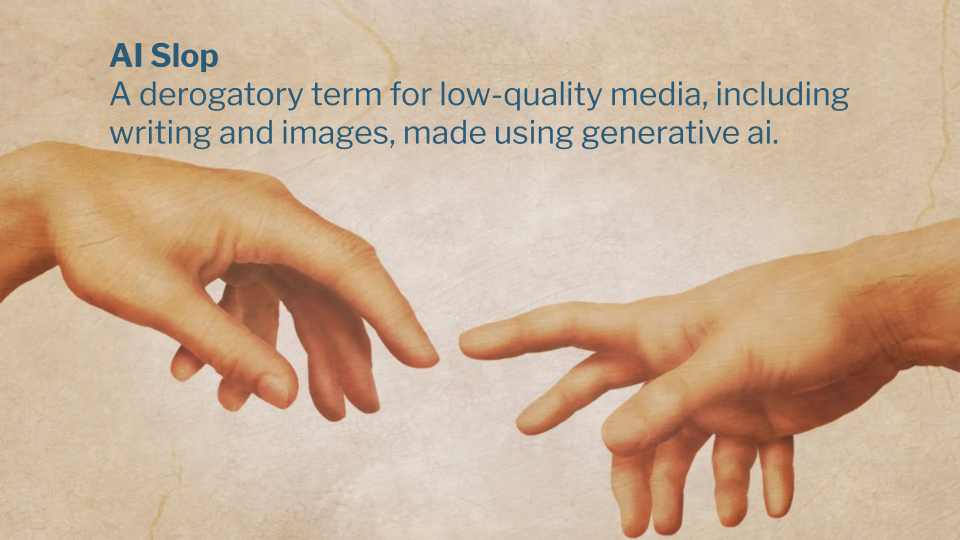I just wrapped up AI Innovation Week at IPADE—Mexico’s most prestigious business school—across their Mexico City and Monterey campuses. The formal recap is on my Actionworks site (which I’ll be using to sell a version of this offering for companies, institutions, and organizations).
But here on the personal website, I share the things that caught my attention during my time south of the border. Read on for the interesting and unusual, from the witchcraft market to the grandma who tried to seduce me.


Why Companies Really Die
I met up with an entrepreneur friend who shared a brutal story about his company’s collapse. Most companies die from cofounder conflict or lack of paying customers. His died because they built their own software.
They’d been using a WordPress solution for their edtech company that wasn’t very elegant, but it was getting the job done. On the back end, everything was stitched together.
Not an ideal setup, but it did the job. One day they decided to spend $30,000 to build the perfect software solution to run the business. But it never worked the way it was supposed to and ultimately set in motion a chain of events that led to the collapse of the company.
This is a good reminder to not build custom software. Use off-the-shelf components whenever possible.
Globalization’s Flavor Problem
Went to Panaderia Rosetta, one of the most buzzed about bakeries in Mexico City, which was good but not dramatically better than the best Mexican bakeries in Austin.
This mirrors my experience eating ramen in Japan versus top ramen spots in the States. Globalization means you don’t need to travel to the source country for the best version of something anymore.
But when something is available at home and you don’t have to cross the globe for it, I suspect that you appreciate it less. It’s so interesting how taste and the perception of value are tied to psychology, not just the ingredients and flavors.

The Gringo Effect
People are genuinely annoyed at Americans driving up rent prices in Mexico City. Despite this frustration, Mexicans are incredibly welcoming and comfortable with international audiences—more so than many other parts of Latin America.
Losing a Mansion in a Bet
The Mexico City IPADE campus was housed in a gorgeous, massive hacienda–an old Spanish-style plantation where it feels like you’re walking through history in each hallway.

The apocryphal origin story of this hacienda is that one of its previous owners lost it in a bet. So much of good business is managing risk in an intelligent way. The owner who put this mansion as collateral for a card game was not practicing good risk management. The irony is delicious.
Best Meal: Torta Pibil
The best meal I ate was a torta pibil (pork sandwich) on a table outside on a beautiful day. The sandwich was greasy, hot, and flavorful. It was incredible and haunts my dreams.
One of my favorite travel tips is to eat at the same restaurant every day for a week straight. You achieve regular-lite status, developing a connection with the staff. If I wasn’t working and had the flexibility, I would have eaten at this place every day. See below for the sandwich and a delicious but uniquely named onion dish.

Cold Outreach Culture Clash
We taught outreach tactics like cold emails and DMs, which isn’t a common practice in Mexico. Mexico emphasizes warmer channels, i.e. pre-existing relationships or you need to know someone who knows someone for outreach.
Teaching American-style cold outreach in Mexico was a joy. We covered this in an AI program because AI is going to make outreach more valuable.


With AI slop filling up social media and Dead Internet Theory suggesting bots will dominate traffic, the most important connections will happen through direct messages. When I talk to entrepreneurs about their big breaks, it usually came from a message, not a post.
Vibe Coding: Non-Developers Can Code Now
Most non-software developers don’t how to build apps. Vibe-coding—using AI to build software—is what allows this to happen. This is an extension of Marc Andreessen’s edict that software is eating the world. Interestingly, no one knew that individuals would be able to make their own software, even if they were non-technical.
I led a session on vibe-coding where MBA students and entrepreneurs debated ideas and we used Replit to build them. One was a combinatoric word game and one was a booking app for nail salons. I remember the oohs and ahhs from the students as they saw software getting built in real time right in front of them.


The Witchcraft (Brujeria) Market
Visited the witchcraft market (Mercado Sonora) full of herbs, blessings, masks, candles, and fortune-telling.

I bought a candle and some tchotchkes, including a pyramid that was a replica of an ancient Mayan artifact. Hopefully, I’ve got the blessing of brujería supporting my endeavors now.
Pulque
I saw a grandma-aged woman selling pulque in a storefront. Pulque is an thick white alcoholic beverage with a unique taste that supposedly gives you masculine energy and extra virility. At least that is what the vendor told me as she winked at me and made thrusting motions with her hips. How could I refuse that sales pitch? I bought some pulque. I’ve felt mucho mas macho ever since.


